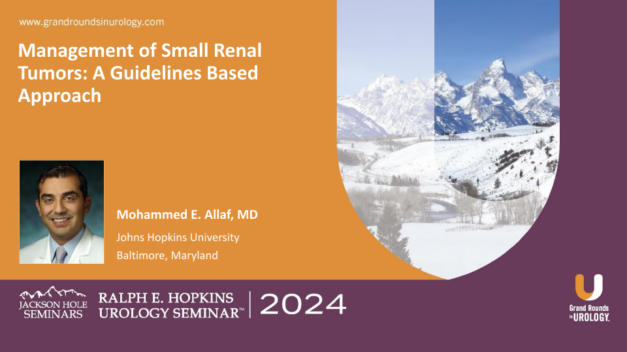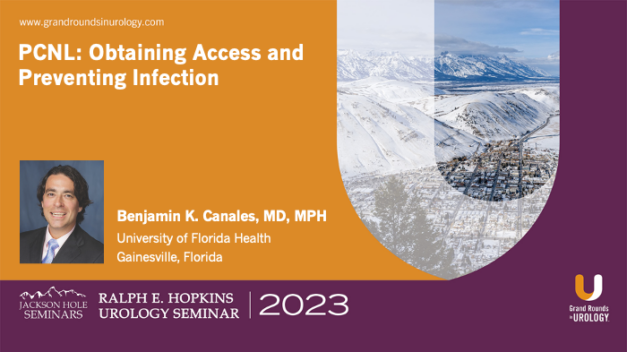Management of Small Renal Tumors: A Guidelines Based Approach
Mohammed E. Allaf, MD, presents a comprehensive overview of managing small renal tumors, focusing on a guidelines-based approach that integrates the latest evidence and expert consensus in the evolving landscape of renal tumor management.
In this 20-minute presentation, Dr. Allaf outlines the current guidelines for evaluating small renal masses. He highlights the critical factors influencing management choices, including gender, tumor size, location, patient comorbidities, age, and family history.
In discussing treatment options, Dr. Allaf examines active surveillance, radical or partial nephrectomy, and ablative therapies and the indications for each approach. He also touches on future directions in treatment and imaging while emphasizing the benefits of the current guidelines.
Read More




